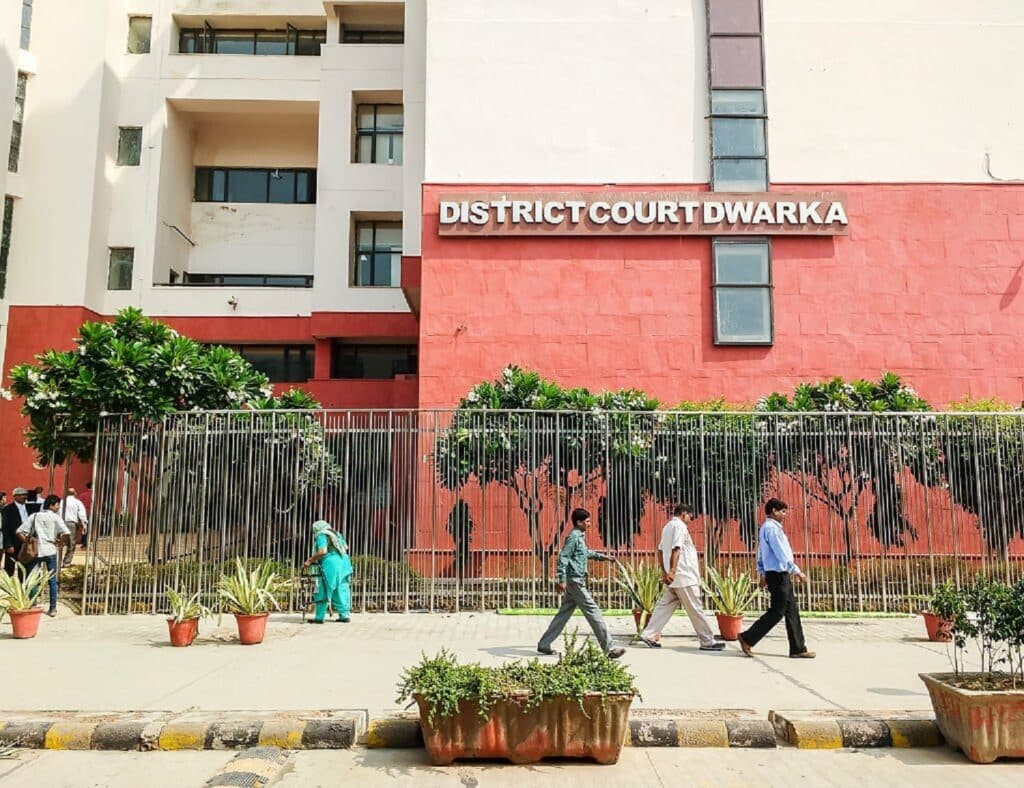Author: Advocate Mohit Bhati, Adhivakta Law Cafe
Date: August 2025
Category: Criminal Law | Judicial Ethics | Legal Commentary

Introduction
In a significant development highlighting the importance of judicial restraint and adherence to constitutional values, the Sessions Court of South-West Delhi recently set aside an unconventional punishment imposed by a Judicial Magistrate. The order, which directed accused persons to stand in court with their hands raised as a form of punishment, was termed illegal, unauthorized by law, and a violation of basic human rights.
This case serves as a reminder that judicial power, though vast, must always be exercised within the framework of the law and the Constitution.
Background of the Case
The case arose from proceedings before the Court of Judicial Magistrate First Class, Saurabh Goyal, Dwarka, in a matter related to a 2018 complaint. The accused persons — Kuldeep, Rakesh, and others — were earlier granted bail with conditions to furnish personal and surety bonds. However, due to delays in complying with the bail conditions, the Magistrate, on July 15, 2025, ordered the accused to stand in court with their hands straight in the air till the rising of the court.
The accused were also convicted under Section 228 of the Indian Penal Code, which deals with intentional insult or interruption to a public servant during judicial proceedings.
Sessions Court’s Observations
The aggrieved accused challenged the Magistrate’s order before the Principal District & Sessions Judge, South-West, Dwarka Courts, Hon’ble Anju Bajaj Chandna, who rightly observed the following:
1. Such Punishment Is Not Recognized by Law
The Sessions Court emphasized that no law permits such physical punishments like making someone stand with raised hands. Such actions are not envisioned under either the Indian Penal Code or the new criminal codes enforced from July 1, 2024.
2. Violation of Article 21 – Right to Life and Dignity
The Hon’ble Judge referred to Article 21 of the Constitution, stating that:
“Every person, even if accused of a crime, has an inalienable right to live with dignity. Courts must ensure no person is subjected to arbitrary treatment or humiliation.”
3. Lack of Due Process
It was also noted that the accused were not given any opportunity to be heard before being punished. The principle of audi alteram partem (hear the other side) was clearly violated.
4. Incorrect Application of IPC Instead of New Laws
Interestingly, the Sessions Court highlighted that the Magistrate failed to apply the new criminal laws which had come into effect from July 1, 2024, and continued to act under the IPC, thus demonstrating a serious procedural error.
Key Legal Lessons
This case highlights several crucial principles every judicial officer and legal practitioner must remember:
- Judicial discretion is not unlimited — it must align with law, procedure, and constitutional mandates.
- Physical punishments of any form, not specifically mentioned in law, are impermissible.
- Due process of law is not a formality but a constitutional guarantee.
- Fundamental rights of the accused remain intact even within the courtroom.
- Awareness of current laws is an ethical and professional obligation of every judicial officer.
Conclusion
The judiciary is the guardian of constitutional rights and human dignity. While maintaining courtroom discipline is essential, it must never come at the cost of legality, decency, or fairness. This judgment by the Sessions Court reinforces the idea that no authority, however high, is above the rule of law.
This incident also underlines the need for regular judicial training and sensitization, especially after major legal reforms like the Bharatiya Nyaya Sanhita, Bharatiya Nagrik Suraksha Sanhita, and Bharatiya Sakshya Adhiniyam, 2023.
📌 About the Author
Advocate Mohit Bhati is the founder of Adhivakta Law Cafe, a legal education platform dedicated to empowering law students and young advocates with practical knowledge. He regularly writes on legal reforms, court judgments, and courtroom practices.
📧 Contact: mohitbhati401@gmail.com
📸 Follow on Instagram: @AdhivaktaLawCafe
#AdhivaktaLawCafe #LegalAwareness #DelhiCourt #JudicialDiscipline #ConstitutionalRights